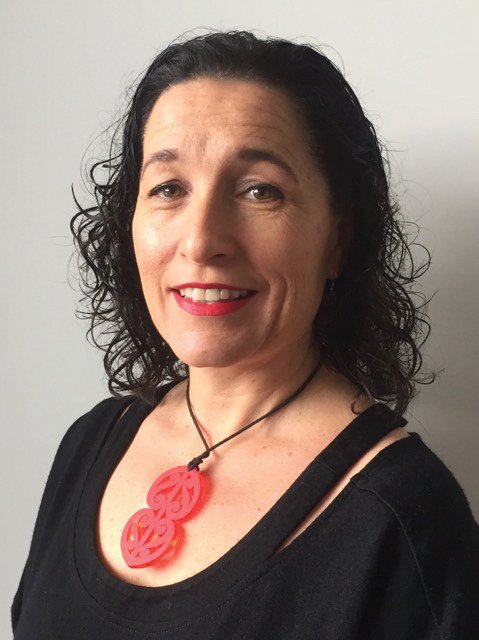Respiratory physician Lutz Beckert considers chronic obstructive pulmonary disease management, including the prevention of COPD, the importance of smoking cessation and pulmonary rehabilitation, and the lifesaving potential of addressing treatable traits. He also discusses the logic of inhaler therapy, moving from single therapy to dual and triple therapy when indicated, as well as other aspects of management
Kick in the guts: Māori, Pacific and rural practices respond to pay parity exclusion
Kick in the guts: Māori, Pacific and rural practices respond to pay parity exclusion

“These front-line clinics have been providing critical care during COVID and are burnt out and exhausted, and now this is just a kick in the guts”
Despite “huge pay parity” gaps faced by Māori health providers, their general practice nurses won’t get pay parity funding, says National Hauora Coalition clinical director Ranche Johnson.
She is one of a number of health provider leaders expressing disappointment, confusion and anger at the exclusion of general practice nurses from yesterday’s nursing pay parity announcement.
When health minister Andrew Little announced the $200-million-a-year pay parity fund for community-based nurses and healthcare workers, he left out general practices (from at least the initial allocation) claiming a “lack of real evidence of pay difference”.
Instead, receivers of the first $40 million tranche of the funding include aged-care facilities and Māori and Pacific healthcare providers because they faced the “biggest pay gap” with the public hospital sector.
Dr Johnson says the coalition is definitely pleased to see that the Māori and Pacific healthcare providers were targeted.
But she is disappointed pay parity funding appears to be directed only at providers who currently have contracts with Te Whatu Ora or Te Aka Whai Ora.
“By not including general practice nurses in the initial pay parity targets, that excludes a lot of our Māori health providers who run general practices to provide services,” says Dr Johnson. “Which is very disappointing given that we know that there are huge pay parity gaps across the board for Māori providers.”
She says NHC knows that a lot of its Māori, iwi and marae providers use some of the contract services to “prop up” underfunded services such as their general practices providing “bread and butter primary care”.
Dr Johnson says it is “absolutely a struggle” for many practices to fund pay parity, and leaving general practices out would not help retain or attract staff.
“The financial reality is that practices, particularly thinking of our Māori providers, but across the board, practices cannot afford to pay higher rates when they are not funded to do such.”
Alliance Health Plus chief executive Wayne Williams say the network’s general practice clinics, which have a focus on Pacific and high-needs communities, are “deeply disappointed” to be left out of the funding announcement.
“These front-line clinics have been providing critical care during COVID-19 and are burnt out and exhausted, and now this is just a kick in the guts.
“For some reason, Mr Little has not been properly advised, or is ignoring it because of other political reasons, such as how much money the Government has actually got to fund this,” says Mr Williams.
“We’re just flabbergasted, really.”
Hauora Taiwhenua chair Fiona Bolden, in a media release headlined, “A kick in the guts for rural nurses”, says the minister excluding nurses in general practice and community-funded rural hospitals from pay parity was a “devastating decision”, not only for the nurses, but the providers and communities they serve.
Dr Bolden, a specialist GP, says there is ample evidence of the pay gap and the minister’s decision will worsen, not address, the already existing rural health workforce crisis and the “continual drain” of nurses away from general practice.
The announcement also closely follows the release of the government-commissioned capitation review which found practices underfunded by $137 million. The authors spoke of rural practices likely facing a much higher funding shortfall.
“This lack of funding, and effective freeze on patient copayments, has put many practices on the financial precipice,” Dr Bolden says in the release.
“Small rural general practices and community-funded rural hospitals do not have the financial flexibility to be able to increase their wages to the DHB equivalent,” she adds.
READ MORE:
- Confusion and anger over pay parity snub for general practice
- Capitation review calculates national primary care losses of 7.6 per cent
- Data what data? Minister and GenPro differ on costings data for pay parity
- Rare petition launch: GenPro seeks public backing for ‘On the Brink’ campaign
- GenPro backs nurses’ pay strike
NZNO’s College of Primary Health Care Nurses acting chair Tracey Morgan says she and other stretched practice nurses are “stunned” to be excluded from pay parity funding.
The practice nurse manager says nurse retention is a daily worry for her and this announcement makes it even harder.
Ms Morgan says the directors of the small Rotorua Very Low Cost Access practice where she works “would love to pay us parity but it is just too high for them”.
She says just last night, one of the practice nurses, currently on maternity leave, texted her to say she wouldn’t be returning as she had taken a job elsewhere with higher pay.
Ms Morgan says the practice’s two other nurses have told her they are being approached by practices paying higher rates.
“For me it's a matter of time [before they leave], it's the squeeze happening right now. I worry every day when I come to work.”
Kerri Nuku, NZNO’s kaiwhakahaere, who has been campaigning for about 15 years for pay parity for Māori and iwi provider nurses, says the announcement appears to be a positive step in the right direction but she is not celebrating yet.
Ms Nuku says she sat in on a Te Whatu Ora briefing yesterday where Māori providers were told the announcement was not intended to give pay parity but “bridge a gap” in the meantime.
“So we don’t know how much of a step in the direction of pay parity that might be.”
She also says Māori providers, including those with general practices, shouldn’t be penalised for trying to retain nurses by drawing funding from other sources so they can pay higher rates.
“They have paid out of their pockets to do that.”
Ms Nuku says that cost needs to be recognised and repaid.
She says what is upsetting for many of the Māori and iwi nurses was that the 2017-18 Waitangi Tribunal claim acknowledged the crisis in the sector but it took COVID to happen, and nurses to start leaving providers, to finally trigger a pay parity response.
Back in 2008 an 11,000-strong petition highlighting the inequity of the iwi and Māori provider pay gap was presented to Parliament, leading to a health select committee recommendation for a working party, but that call was vetoed. Ms Nuku has also taken the nurses’ case to the United Nations twice.
The Māori provider nurses then lodged a claim and gave evidence as part of the Waitangi Tribunal’s 2018 stage one inquiry into health services.
That inquiry led to the 2020 Wai 2575 report calling for urgent action on resolving the historic underfunding of Māori providers.
We're publishing this article as a FREE READ so it is FREE to read and EASY to share more widely. Please support us and the hard work of our journalists by clicking here and subscribing to our publication and website









![Barbara Fountain, editor of New Zealand Doctor Rata Aotearoa, and Paul Hutchison, GP and senior medical clinician at Tāmaki Health [Image: Simon Maude]](/sites/default/files/styles/thumbnail_cropped_100/public/2025-03/Barbara%20Fountain%2C%20editor%20of%20New%20Zealand%20Doctor%20Rata%20Aotearoa%2C%20and%20Paul%20Hutchison%2C%20GP%20and%20senior%20medical%20clinician%20at%20T%C4%81maki%20Health%20CR%20Simon%20Maude.jpg?itok=-HbQ1EYA)
![Lori Peters, NP and advanced health improvement practitioner at Mahitahi Hauora, and Jasper Nacilla, NP at The Terrace Medical Centre in Wellington [Image: Simon Maude]](/sites/default/files/styles/thumbnail_cropped_100/public/2025-03/2.%20Lori%20Peters%2C%20NP%20and%20advanced%20HIP%20at%20Mahitahi%20Hauora%2C%20and%20Jasper%20Nacilla%2C%20NP%20at%20The%20Terrace%20Medical%20Centre%20in%20Wellington%20CR%20Simon%20Maude.jpg?itok=sUfbsSF1)
![Ministry of Social Development health and disability coordinator Liz Williams, regional health advisors Mary Mojel and Larah Takarangi, and health and disability coordinators Rebecca Staunton and Myint Than Htut [Image: Simon Maude]](/sites/default/files/styles/thumbnail_cropped_100/public/2025-03/3.%20Ministry%20of%20Social%20Development%27s%20Liz%20Williams%2C%20Mary%20Mojel%2C%20Larah%20Takarangi%2C%20Rebecca%20Staunton%20and%20Myint%20Than%20Htut%20CR%20Simon%20Maude.jpg?itok=9ceOujzC)
![Locum GP Helen Fisher, with Te Kuiti Medical Centre NP Bridget Woodney [Image: Simon Maude]](/sites/default/files/styles/thumbnail_cropped_100/public/2025-03/4.%20Locum%20GP%20Helen%20Fisher%2C%20with%20Te%20Kuiti%20Medical%20Centre%20NP%20Bridget%20Woodney%20CR%20Simon%20Maude.jpg?itok=TJeODetm)
![Ruby Faulkner, GPEP2, with David Small, GPEP3 from The Doctors Greenmeadows in Napier [Image: Simon Maude]](/sites/default/files/styles/thumbnail_cropped_100/public/2025-03/5.%20Ruby%20Faulkner%2C%20GPEP2%2C%20with%20David%20Small%2C%20GPEP3%20from%20The%20Doctors%20Greenmeadows%20in%20Napier%20CR%20Simon%20Maude.jpg?itok=B0u4wsIs)
![Rochelle Langton and Libby Thomas, marketing advisors at the Medical Protection Society [Image: Simon Maude]](/sites/default/files/styles/thumbnail_cropped_100/public/2025-03/6.%20Rochelle%20Langton%20and%20Libby%20Thomas%2C%20marketing%20advisors%20at%20the%20Medical%20Protection%20Society%20CR%20Simon%20Maude.jpg?itok=r52_Cf74)
![Specialist GP Lucy Gibberd, medical advisor at MPS, and Zara Bolam, urgent-care specialist at The Nest Health Centre in Inglewood [Image: Simon Maude]](/sites/default/files/styles/thumbnail_cropped_100/public/2025-03/7.%20Specialist%20GP%20Lucy%20Gibberd%2C%20medical%20advisor%20at%20MPS%2C%20and%20Zara%20Bolam%2C%20urgent-care%20specialist%20at%20The%20Nest%20Health%20Centre%20in%20Inglewood%20CR%20Simon%20Maude.jpg?itok=z8eVoBU3)
![Olivia Blackmore and Trudee Sharp, NPs at Gore Health Centre, and Gaylene Hastie, NP at Queenstown Medical Centre [Image: Simon Maude]](/sites/default/files/styles/thumbnail_cropped_100/public/2025-03/8.%20Olivia%20Blackmore%20and%20Trudee%20Sharp%2C%20NPs%20at%20Gore%20Health%20Centre%2C%20and%20Gaylene%20Hastie%2C%20NP%20at%20Queenstown%20Medical%20Centre%20CR%20Simon%20Maude.jpg?itok=Z6u9d0XH)
![Mary Toloa, specialist GP at Porirua and Union Community Health Service in Wellington, Mara Coler, clinical pharmacist at Tū Ora Compass Health, and Bhavna Mistry, specialist GP at Porirua and Union Community Health Service [Image: Simon Maude]](/sites/default/files/styles/thumbnail_cropped_100/public/2025-03/9.%20Mary%20Toloa%2C%20Porirua%20and%20Union%20Community%20Health%20Service%20in%20Wellington%2C%20Mara%20Coler%2C%20T%C5%AB%20Ora%20Compass%20Health%2C%20and%20Bhavna%20Mistry%2C%20PUCHS%20CR%20Simon%20Maude.jpg?itok=kpChr0cc)